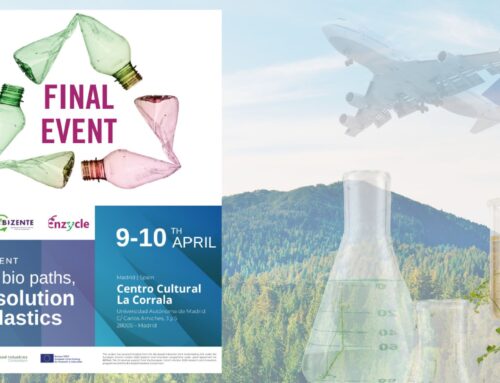
In October 2023, Bizente and ARAID held the third of the workshops framed in the project, in which dozens of principal investigators from different research groups belonging to the Foundation participated, who attended the presentation by Susana Velasco, ARAID researcher at the Institute of Chemical Synthesis and Homogeneous Catalysis of the University of Zaragoza. The event was also attended by Pilar Gayán, Director General of Science and Research of the Government of Aragón, and Professor José Luis Serrano, Director of the Department of Organic Chemistry at the University of Zaragoza. During the meeting, the workflow of the different members of the Bizente consortium was described, as well as their main tasks and goals. The results previously obtained regarding the development of HTS colorimetric techniques (TuDelft) and the best enzyme variants achieved by directed enzyme evolution (Evoenzyme) were summarized. Subsequently, the scale-up (6 and 150 L) of heterologous expression of the best variants in P. pastoris (RancoR, Grogu and PETase N57) was discussed (Biosphere), as well as the results in enzymatic degradation of resins (R930A, Araldite, DION impact) (Biosphere).
The general strategy used to improve the enzymatic degradation of resins through resin reformulation (replacement of S-S type hardeners) was also described (Specific polymers). Finally, the perspectives of the project were discussed. Researcher Alberto Jiménez Schuhmacher from Aragon Health Research Institute was interested in ancestral reconstruction strategies for enzymes whose relatives show less specificity. Researcher Jonas Gurauskis from Aragon Nanoscience and Materials Institute was interested in the public availability of the enzyme catalog developed in the project. In addition, researcher Ramón Hurtado from the Institute for Biocomputation & Physics Of Complex Systems showed interest in the enzymatic capacity in the degradation of solid substrates. Finally, researcher José Olmo from the Department of Economic Analysis of ADRETE wanted to inquire more about the logistics of shipping the “materials” and products developed among the members of the project, as well as about the choice of resins for the plastic thermosets evaluated, and he was also interested in the sources of funding for the project.





